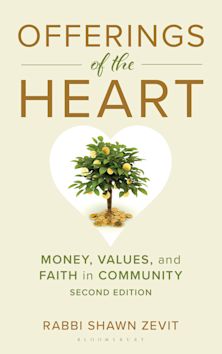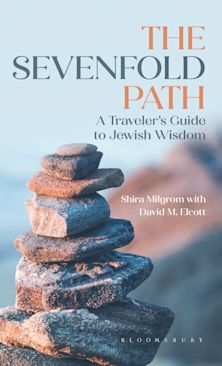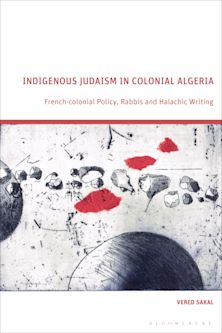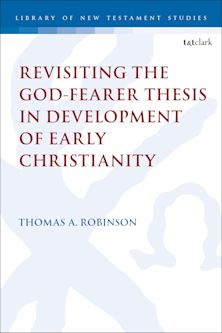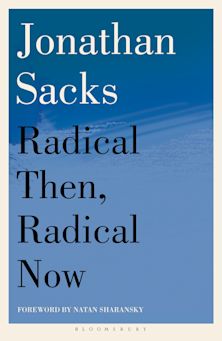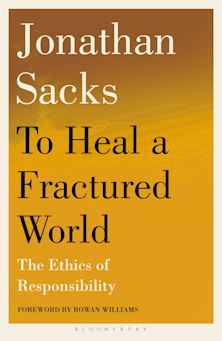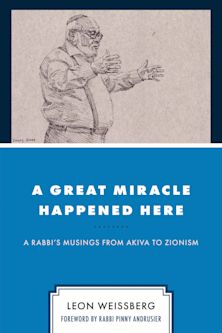- Home
- ACADEMIC
- Religious Studies
- Judaism
- Music and Religious Change among Progressive Jews in London
Music and Religious Change among Progressive Jews in London
Being Liberal and Doing Traditional
Music and Religious Change among Progressive Jews in London
Being Liberal and Doing Traditional
This product is usually dispatched within 3 days
- Delivery and returns info
-
Free CA delivery on orders $40 or over
You must sign in to add this item to your wishlist. Please sign in or create an account
Description
This book analyses religion and change in relation to music within the context of contemporary progressive Judaism. It argues that music plays a central role as a driving force for religious change, comprising several elements seen as central to contemporary religiosity in general: participation, embodiment, experience, emotions and creativity. Focusing on the progressive Anglo-Jewish milieu today, the study investigates how responses to these processes of change are negotiated individually and collectively and what role is allotted to music in this context. Building on ethnographic research conducted at Leo Baeck College in London (2014–2016), it maps how theologically unsystematic life-views take form through everyday musical practices related to institutional religion, identifying three theoretically relevant processes at work: the reflexive turn, the turn within and the turn to tradition.
Table of Contents
1. Theoretical Starting Points
2. Entering the Ethnographic Field
3. Dinah: Radical and Liberal in Theology, Traditional in Practice
4. Micah: Music as a Bridge between Diverse Jewish Experiences
5. Esther: Singing as a Form of Understanding
6. David: The Wish to Have a Broader Sort of Thing
7. Rachel: “It's Not the Words, It's the Melodies”
Conclusion
Product details
| Published | Jul 15 2021 |
|---|---|
| Format | Paperback |
| Edition | 1st |
| Extent | 182 |
| ISBN | 9781498542227 |
| Imprint | Lexington Books |
| Illustrations | 2 tables; |
| Dimensions | 230 x 153 mm |
| Publisher | Bloomsbury Publishing |
About the contributors
Reviews
-
This carefully researched book is based on the author’s longstanding experience. Its innovative exploration of how vernacular religion uses music to link with tradition has implications far beyond the community on which it is focused, particularly in the area of identity construction. Its lively use of narratives makes it a fascinating read.
June Boyce-Tillman, University of Winchester
-
The main merit of Ruth Illman’s book is that it takes music seriously in the study of religion. She explores music as an instigator and insignia of religious change by carrying out in-depth, ethnographic research into the field of progressive Judaism. By doing this, Illman brings theory and the complexity of the everyday lived religion together in a well-structured book. She shows that musical practices provide a religious language that is border-crossing: merging the intellectual and the emotional, and facilitating interreligious explorations. Music is an intermediary space, or—as one of the interviewees says—‘In some ways music is the religious experience.’
Martin Hoondert, Tilburg University
-
An important and innovative exploration of music, change, and tradition in the synagogue practice of progressive Jews in Great Britain. Ruth Illman’s engaging scholarship deepens our understanding of the centrality of music in contemporary religious life.
Jeffrey A. Summit, Tufts University
-
In Music and Religious Change Among Progressive Jews in London: Being Liberal and Doing Traditional, Ruth Illman investigates three ‘turns’ in vernacular Judaism that have enabled five persons connected with London’s Leo Baeck College to experience more embodied, emotionally engaging, and distinctively Jewish expressions of faith: a reflexive turn (which addresses the importance of personal religious and spiritual choice), a turn within (which enables an emotional and embodied experience of doingJewish), and a turn toward tradition (which recovers the use of several practices of Orthodox Judaism within Liberal and Reform Judaism in England.) The key to this commitment to ‘being liberal and doing traditional’ for all five key narratives in the ethnographic study Illman presents is the role of music as both an instigator and an insignia of religious change within the synagogues in which each correspondent participates. Two practices characteristic of traditional Judaism that are vital to this Jewish sonic space are the inclusion of niggunim (wordless melodies that function as prayer) and nusach (chanting, rather than simply reading texts from Torah and traditional prayers of worship). Illman’s contribution to understanding the hunger for authentic practices of faith within Jewish communities in England is appreciated, and her discussion of the role of music in filling that hunger is significant.
Alan Smith, Florida Southern College

ONLINE RESOURCES
Bloomsbury Collections
This book is available on Bloomsbury Collections where your library has access.












